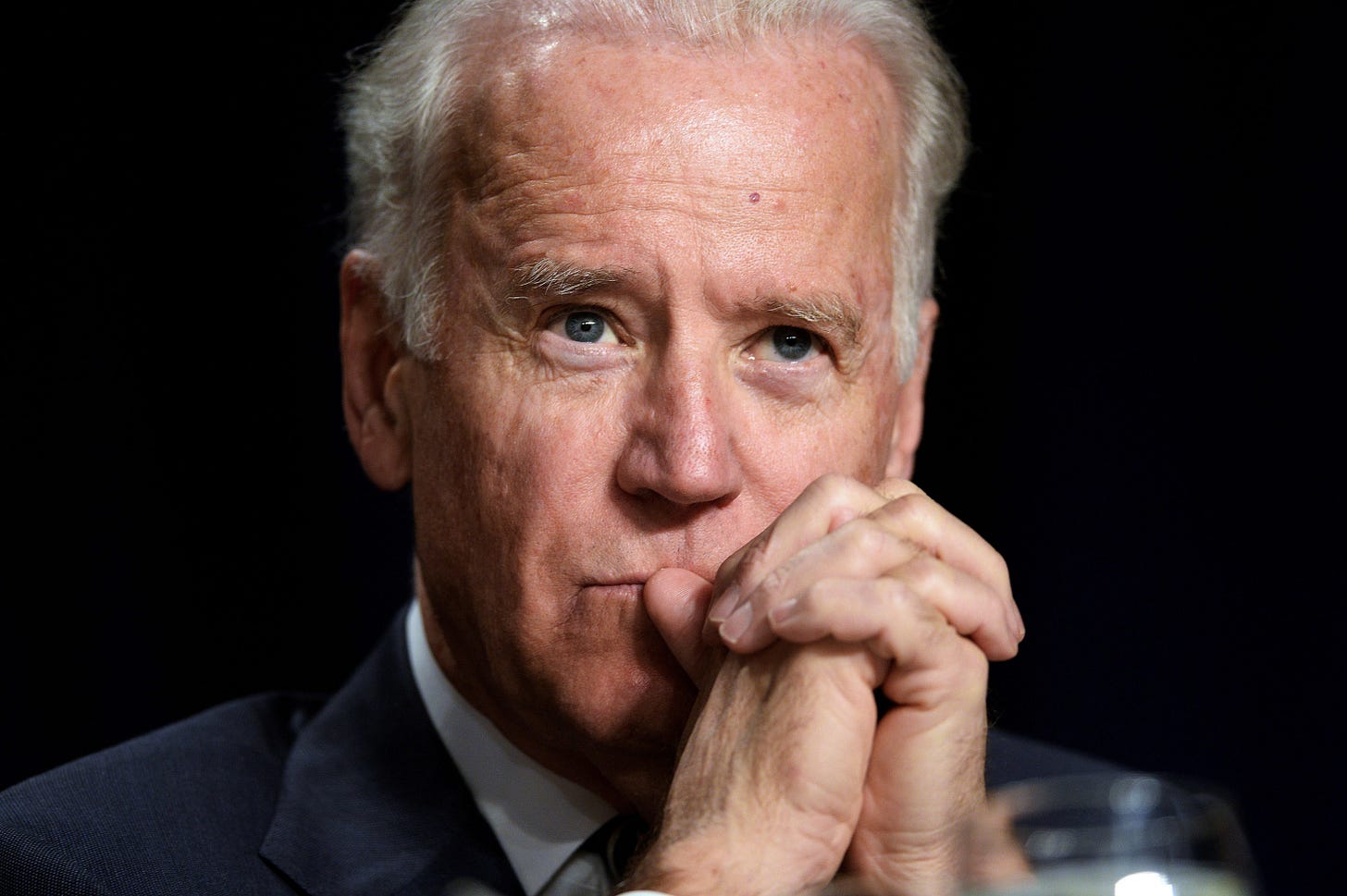The Tao of Joe
Joe Biden is stronger than you think.
Veteran campaign pro Joe Trippi sat down with Bill Kristol for an hour last week to talk about 2020, the Democratic field, and President Trump. The entire interview is absolutely worth your valuable time.
Trippi’s big takeaways are:
(1) Biden is a heavier favorite than people realize.
He’s leading most polls of the Democratic field by 8 points or so over Bernie Sanders.
He has deep wells of support: More Democrats identify themselves as “Obama” Democrats than either “moderate” or “liberal” Democrats.
Here’s Trippi: “No vice president in my lifetime has ever sought—former or sitting—has ever sought the party’s nomination and not received it, not one.”
(2) Biden changes the dynamics of race.
The current Democratic field is arrayed as an ideological fight, with Bernie Sanders on one end of the spectrum and Amy Klobuchar on the other.
If Biden gets in, the center of gravity shifts so that the race is more about generational change—Biden or Bernie versus Beto or Kamala. At that point, political purity begins to matter much less.
(3) Lessons from the 2010 California governor’s race.
In 2010, California was finishing its unhappy experiment with a novice celebrity governor.
In the race to succeed him, Republicans nominated a smart, successful, appealing woman named Meg Whitman who had been the CEO of a beloved Silicon Valley tech company.
Jerry Brown had already been secretary of state, governor, mayor of Oakland, and attorney general. He was old news.
But California voters were so shellshocked by the Ah-nold experience that they rushed to embrace what they saw as Brown’s steady hand.
They wanted no part of either Whitman or the young liberal wunderkind Gavin Newsom.
Here’s Trippi:
We’ve got the CEO; we’ve got this young, vibrant Gavin Newsom. And I really thought, when I went in the first research and focus groups and talking to voters, that I was going to get, “that guy’s been around forever,” you know. ...
“Oh, we did that with Arnold Schwarzenegger. He was new, he had been outside of government. Didn’t know anything about how to run a government. I don’t want anybody we have to put training wheels on. Please, no, I’m not doing that.”
Then you go, well, what about this young new Gavin Newsom guy, a lieutenant who’s going to run for governor? “No, no, no, I just want somebody who knows where the light switches are, and knows how government really works, and has a chance to solve these problems.”
So then you go, like, we talked to them a little bit more, and I’d be getting ready to hear about Governor Moonbeam and all the stuff. It was instead us saying, but, when they’d say, “No, I love his experience, yes, he knows how everything in government works; look at all the jobs he’s had.” And you’d go, but what about Governor Moonbeam? “No, no, no, he’ll know how to get things done.” Of course, it doesn’t have to go that way. Trippi allows that Democrats could instead push for maximum polarization and decide that to beat Trump you need a Trump.
Lucky us.
However, I suspect that the conclusion of the conclusion of the Mueller investigation without indictments makes the max polarization scenario less likely and makes the unity-theme path easier for a Democrat.
The base of the Democratic party has wanted impeachment from the minute it became clear that the Electoral College members were going to cast their votes for Trump faithfully.
More strategically minded Democrats believed that impeachment was a morass that would: (1) Not remove Trump; (2) Create a public backlash; and (3) Make 2020 a referendum not on Trump’s tenure but on the idea of impeachment.
Maybe this is a contest Democrats could win. But why would you want to take that chance instead of simply running against the record of the guy with the constant -10 approval rating?
Had Mueller recommended indictment, Pelosi would have had a hard time keeping her caucus from walking down the impeachment path.
For the 2020 candidates it would have been even worse: The top tier candidates would have looked at the polling and tried to finesse the idea of impeachment so as to preserve their general election chances.
But down in the third tier, some candidate languishing and looking for product differentiation—maybe a senator named Gristen Killibrand—would have gone full-impeachment and used it as a club against the DINO-cuck-squishes who weren’t willing to do what it took to rid America of the Orange Menace.
With impeachment off the table, we’re now done relitigating 2016 once and for all. The next election will be about the future. Or perhaps it’s more accurate to say that Democrats will now be forced to face the fact that the next election—like every election—is about the future.
They’ve been stripped of their Trump impeachment fantasies. As an electoral matter, that’s usually helpful.
If you really want to nerd out, though, the best parts of the Trippi interview are when he reminisces about the 1988 primary, where he worked the Gephardt campaign and went from last to first in the Iowa caucuses in 18 days. Eighteen days.
Which really screwed Al Gore.
Gore had been betting on Dukakis winning both Iowa and New Hampshire and then being the Southern alternative to yet another Northeastern liberal. Oops.
But that’s not the best part.
The best part is that while Gephardt and Trippi were sitting in dead last, the guy leading the pack and hoping to use an Iowa win to slingshot into a face-off with Dukakis was Illinois Senator Paul Simon.
And Paul Simon’s campaign was run by ... David Axelrod.



